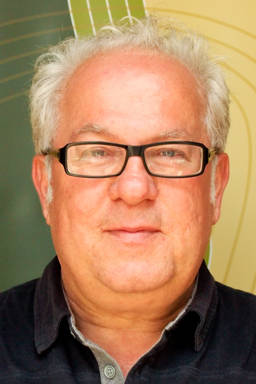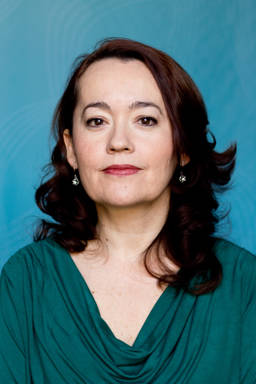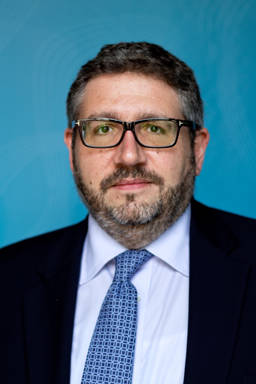Cyprus
PRIO Cyprus Centre welcomes Norwegian delegation
An excellent opportunity for a principled yet pragmatic discussion on the Cyprus problem, regional realities, and topical issues.
"The solution of the Cyprus problem should be addressed more comprehensively within the framework of sustainable development"
Stated Ipek Borman PCC research consultant at a panel organized on the occasion of International Day of Peace
Describing the Cyprus problem as the main problem affecting all aspects - political, economic, social, cultural and environmental - of the lives of Cypriots
Ipek Borman from PCC appeared on Ulaş Barış's Agenda programme on Kıbrıs Postası TV to discuss the latest developments in the Cyprus problem:
Ipek Borman, PRIO Cyprus Centre research consultant and member of the Cyprus Women's Bicommunal Coalition (CWBC), participated in a study visit to Northern Ireland and Ireland
The CWBC conducted a working visit to Belfast and Dublin on 1-5 September 2024.
Read the latest blog post from Mete Hatay: Turkish Cypriots and “Demographic Danger”
In March 2024, Bülent Dizdarlı, a respected Turkish Cypriot doctor and former head of the medical association, speculated on his Facebook page that the population of the unrecognised Turkish Republic of Northern Cyprus (TRNC) had reached two million.
2024 Barcelona Summer School of the Mediterranean and the Middle East
The Barcelona Summer School of the Mediterranean and the Middle East is a joint initiative of IBEI, Blanquerna, DIPLOCAT and IEMED.
Harry Tzimitras comments in The Guardian article, Erdoğan hails ‘new era’ of friendship with Greece on historic visit to Athens
“There’s no doubt that, just as in the 1990s, both countries were united this year by bonds of common suffering, allowing the governments to move ahead with rapprochement and providing the legitimacy for it to be accepted,”
NEW publication: From Crisis To Cooperation: Addressing Mediterranean Water Governance Through Coordinated Action by Emine Eminel Sülün
The pursuit of water security, fair distribution of water resources, and avoidance of conflicts related to their use and management are crucially linked to the development of a strong water governance framework.
NEW publication: Key Water Challenges in the Eastern Mediterranean: A Call for Regional Cooperation by Emine Eminel Sülün
Water is essential for life, and our reliance on it shapes every aspect of our existence. Countries in the Eastern Mediterranean are grappling with numerous water-related issues.
Mete Hatay comments in article The Curious Case of a Cyprus Ghost Town
But Mete Hatay, a Cyprus-born senior research consultant with Peace Research Institute Oslo who has long studied the conflict, says indications are that the countries will not discuss Cyprus even as they intend to "move further with their bilateral relations."
NEW Occasional Paper Series 7 - Exploring the Political Dynamics of the EuroAsia, EuroAfrica, and Türkiye-North Cyprus Interconnector Projects: Implications for Cyprus By Emine Eminel Sülün
Jointly published with the Friedrich-Ebert-Stiftung Cyprus the paper discusses the significance of interconnector projects in the Eastern Mediterranean.
Interview with Harry Tzimitras, Director - PRIO Cyprus Centre
"The unfortunate dual calamities hitting Turkey and Greece in the first half of 2023 in the forms of a devastating earthquake and horrendous train crash respectively, revived memories of the summer of 1999, when two major destructive earthquakes hit Istanbul and Athens.
NEW PCC Report 2/2022 Small, Fragile, and Unequal: Reporting on Women, Peace and Security in Cyprus and Kosovo
The PRIO Cyprus Centre as a new Knowledge Partner has the pleasure to be holding a panel discussion during the #CyprusForum 29-30.09.22 in Nicosia, entitled:
Cyprus at the heart of a regional energy market. What would it take?
Article in POLITICO with Comments by Harry Tzimitras
“Energy could be a good platform for reconciliation in politically laden regions, like Cyprus and beyond, but unfortunately, it has become yet another chapter in the book of the conflict.
Mete Hatay Receives the Necati Özkan Award
Last night, PRIO Cyprus Centre Senior Research Consultant Mete Hatay received the Necati Özkan Award by the Necati Özkan Foundation for best researcher of the last three years.
New book: The Foreign Policy of the Republic of Cyprus Local, Regional and International Dimensions
Edited by Zenonas Tziarras
A Strategic Friendship: Israeli Perceptions of the Israel-Cyprus Relationship By Yonatan Brander
NEW Occasional Paper Series
Podcast Episode on Natural Resources and Struggles for Power in the Eastern Mediterranean
Recent discovery of hydrocarbon has exacerbated existing geopolitical tensions in the Eastern Mediterranean.
Zenonas Tziarras in ISPI Panel Discussion 'The Scramble for the Eastern Mediterranean'
Organised in the framework of Rome MED Mediterranean Dialogues, 29 June 2021
Syria’s Transition at the Crossroads: Will the New Syria become a Pillar of Stability or a Source of Turmoil for the Region?
PRIO Cyprus Centre Policy Brief
Cyprus
Book chapter in Yearbook of Muslims in Europe, Volume 16
Snapshot of migration to Cyprus in the last five years
FES briefing
Snapshot of Migration to and from Egypt in the Last Five Years
FES briefing
Snapshot of Migration to and from Lebanon in the Last Five Years
FES briefing
Cyprus in the EU and EMU: A Retrospect
Occasional Paper Series
The Cyprus Property Issue and the Return of Lawfare
Occasional Paper Series
Heated transformation of a frozen conflict: Jumpstarting a process in a changing island
PRIO Cyprus Centre Policy Brief
The buffer zone in Cyprus: Clarifying the concepts of legal status and legal responsibility
PRIO Cyprus Centre Report
Ο Ερντογάν δεν αποτελεί τη χειρότερη εξέλιξη
Popular article in To Vima
Earthquake politics: A reflection on aftershocks in Cyprus
PRIO Cyprus Centre Policy Brief
The Cypriot Presidential Election of 2023 and its Aftermath
FES and PCC Briefing
Small, Fragile, and Unequal: Reporting on Women, Peace and Security in Cyprus and Kosovo
PRIO Cyprus Centre Report
Kıbrıs: Bitmeyen Yaz
Edited volume
Cyprus
Book chapter in Yearbook of Muslims in Europe
Women between War and Peace in Cyprus: The security sector as the missing link
PRIO Cyprus Centre Policy Brief
Human Trafficking in Cyprus: The Crime, Victims, Perpetrators, and their Connection to the Island’s Frozen Conflict
PRIO Cyprus Centre Report
The Green Pivot: Cyprus and the regional market
1
Külliye'ye Niye Karşıyım?
Popular article in Havadis Newspaper
Europe’s Green Transition: New Areas of Conflict and Cooperation in Divided Cyprus
PRIO Cyprus Centre Policy Brief
'Inclusive Peacebuilding' (InPeace)
Cyprus Conference: Contested Borderlands as Spaces of Negotiation and Adaptation
Migration in the Eastern Mediterranean
Anniversaries of Cyprus: Revisiting the Past, Reimagining the Future
Europe at Crossroads: Transatlantic Bridge or Rift?
Intercommunal Dynamics in Cyprus' Mixed Communities
Join us for two very promising panel discussions during the 2024 Cyprus Forum 03-04 October 2024
Cyprus Futures Online Launch
Barcelona Summer School of the Mediterranean and the Middle East
"Grab a Cypriot Coffee" with Harry Tzimitras
The Grey Zones of Suspended Sovereignty: Turkey and the Rise of 'Wild Capitalism' in Cyprus
Film and Discussion: Spaces of Reconciliation
Delivering the Cyprus Peace Dividend
Building Peace in Cyprus through Linkages
Effective Multilateralism for Regional Stability: Cyprus’ Vision for the Eastern Mediterranean region
Cyprus and Challenges in Constitutional Transitions
FILM SCREENING: 3 short films about Hope: The story of the Northern Ireland Good Friday Agreement 20 years on
“The Belt and Road Initiative”: China’s new “Silk Road” and the Eastern Mediterranean
BREXIT and its Implications for Cyprus
Women in the Peace Process and Women in Politics
Migration in the Mediterranean
2004 Enlargement and its impact on the EU and new members
Gender and Security in Missions in Protracted Conflicts: Cyprus and Beyond
Politics of conservation, restoration, and revitalization in Northern Cyprus: fragmented geographies of heritage production
From Separation to Contact: What Peace Looks Like in Cross-Ethnic Environmental Cooperation within the Cyprus Buffer Zone
COVID-19 and De Facto States
Delivering the Cyprus Peace Dividend
Diaspora Turks and Perceived Kin Communities in Turkish Foreign Policy: Examples from Europe and the Middle East
Spaces of Reconciliation: Youth Interaction through Art in the City
Re-Imagining the Eastern Mediterranean
Turkish Foreign Policy
The Foreign Policy of the Republic of Cyprus
Hyper-development and unresolved conflict
Revisiting the property issue
Rethinking Varosha
Building Peace in Cyprus through Linkages
Identity Politics in North Cyprus
Religion in Cyprus
Preparing Educational Structures for Federal Arrangements
The Aftermath of Hotspots
No More Lost Opportunities
The Victory of Mustafa Akıncı in Northern Cyprus gives Hope to Turkish Cypriots of a Better Future
Recognising and Denying Armenian Losses in Cyprus
How do we Maximise the Cyprus Peace Dividend?
Business and Peace
The Israeli-Palestinian conflict: Notes From a Small Neigboring Island – Lessons from the reactions to the crisis
A Surprise in Cyprus? Recent Elections and the Return of the Populist Right
Creating a Third Space in the Cyprus Conflict: Mete Hatay Interviewed by Cindy Horst
- Algeria
- Angola
- Botswana
- Burkina Faso
- Burundi
- Cameroon
- Cape Verde
- Central Africa
- Chad
- Cote d'Ivoire
- Democratic Republic of the Congo
- Djibouti
- East Africa
- Egypt
- Eritrea
- Ethiopia
- Gambia
- Ghana
- Guinea
- Guinea-Bissau
- Horn of Africa
- Kenya
- Lesotho
- Liberia
- Libya
- Madagascar
- Malawi
- Mali
- Mauritania
- Morocco
- Mozambique
- Namibia
- Niger
- Nigeria
- North Africa
- Rwanda
- Sahel
- Senegal
- Sierra Leone
- Somalia
- South Africa
- South Sudan
- Southern Africa
- Sudan
- Swaziland
- Tanzania
- Tunisia
- Uganda
- West Africa
- Western Africa
- Zambia
- Zimbabwe
- Abkhazia
- Afghanistan
- Armenia
- Azerbaijan
- Bangladesh
- Cambodia
- Central Asia
- China
- East Asia
- East Timor
- Georgia
- Hong Kong
- India
- Indonesia
- Iran
- Iraq
- Israel
- Japan
- Jordan
- Kazakhstan
- Kuwait
- Kyrgyzstan
- Laos
- Lebanon
- Malaysia
- Middle East
- Mongolia
- Myanmar
- Nepal
- North Korea
- Pacific Asia
- Pakistan
- Palestine
- Philippines
- Qatar
- Russia
- Saudi Arabia
- South Asia
- South Korea
- Southeast Asia
- Sri Lanka
- Syria
- Tajikistan
- Thailand
- Turkey
- Turkmenistan
- United Arab Emirates
- Uzbekistan
- Vietnam
- West Asia
- Yemen
- Albania
- Baltic Countries
- Belarus
- Belgium
- Bosnia and Herzegovina
- Caucasus
- Central Europe
- Croatia
- Cyprus
- Czech Republic
- Denmark
- Eastern Europe
- Eastern Mediterranean
- Estonia
- Finland
- France
- Germany
- Greece
- Hungary
- Ireland
- Italy
- Kosovo
- Latvia
- Lithuania
- Macedonia
- Moldova
- Montenegro
- Nordic countries
- Northern Europe
- Northern Ireland
- Norway
- Poland
- Portugal
- Romania
- Russia
- Serbia
- Slovakia
- Slovenia
- Southern Europe
- Spain
- Svalbard and the Jan Mayen Island
- Sweden
- Switzerland
- The Balkans
- The Baltic Sea Area
- The Barents Region
- The European Union
- The Netherlands
- Ukraine
- United Kingdom
- Western Europe
- Yugoslavia (former)








